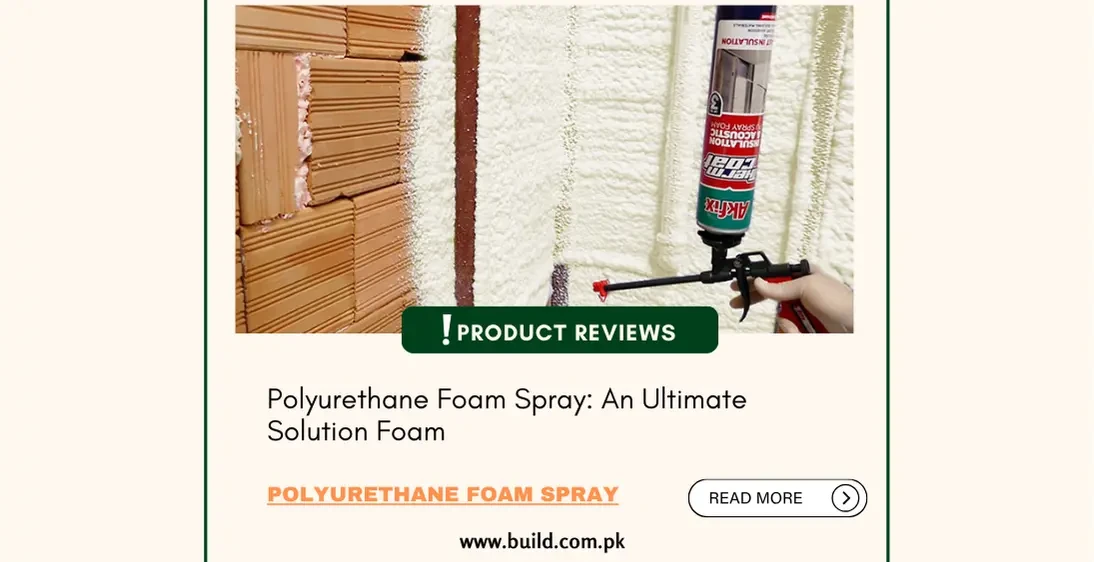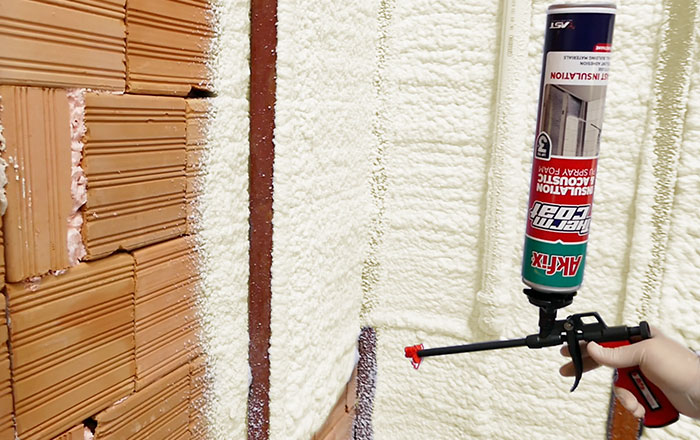Polyurethane Foam Spray: An Ultimate Solution Foam

Introduction:
Polyurethane
foam spray, often referred to as spray foam, is a versatile and highly
effective material used in various applications ranging from insulation to
sealing gaps and cracks. Its expanding properties and excellent insulating
capabilities make it a popular choice for both residential and commercial
projects. In this comprehensive guide, we will explore the characteristics,
types, applications, benefits, and best practices for using polyurethane foam
spray, providing valuable insights for anyone considering this material for
their next project.
What is Polyurethane Foam Spray?
Polyurethane
foam spray is a chemical product that is sprayed from a can or specialized
equipment and expands into a foam upon application. It is made from a
combination of polyol resin and isocyanate, which react when mixed to form a
dense, rigid, and highly adhesive foam. This foam can expand up to 60 times its
liquid volume, filling gaps, sealing cracks, and providing excellent thermal
insulation.
Characteristics of Polyurethane Foam Spray
1. Expanding Properties:
One
of the most notable characteristics of polyurethane foam spray is its ability
to expand significantly upon application. This property allows it to fill gaps,
cracks, and voids effectively, ensuring a tight seal and enhanced insulation.
2. Excellent Insulation:
Polyurethane
foam spray offers superior thermal insulation compared to traditional materials
like fiberglass or cellulose. Its high R-value (a measure of thermal
resistance) means it provides better insulation with less material, making it
highly efficient.
3. Moisture Resistance:
Polyurethane
foam spray is highly resistant to moisture, making it ideal for applications in
damp or humid environments. It can prevent mold and mildew growth, contributing
to a healthier indoor environment.
4. Strong Adhesion:
The
foam adheres well to a variety of surfaces, including wood, metal, concrete,
and plastic. This strong adhesion ensures that the foam stays in place and
provides long-lasting performance.
5. Versatility:
Polyurethane
foam spray is available in different formulations to suit various applications,
from low-density foam for insulation to high-density foam for structural
support. This versatility makes it suitable for a wide range of projects.

Types of Polyurethane Foam Spray
Open-Cell Foam:
Open-cell
polyurethane foam spray is characterized by its low density and sponge-like
texture. It is softer and more flexible than closed-cell foam, making it ideal
for applications where breathability and sound absorption are important.
Open-cell foam has an R-value of around 3.5 per inch and is commonly used for
interior insulation and soundproofing.
Closed-Cell Foam:
Closed-cell
polyurethane foam spray is denser and more rigid than open-cell foam. Its
closed-cell structure provides superior thermal insulation and moisture
resistance, making it ideal for exterior applications, roofing, and areas prone
to moisture. Closed-cell foam has a higher R-value, typically around 6 to 7 per
inch, and offers structural support in addition to insulation.
Two-Component Spray Foam:
Two-component
polyurethane foam spray involves mixing two chemical components (polyol resin
and isocyanate) on-site using specialized equipment. This type of foam is
commonly used in large-scale commercial and industrial projects due to its
precision and consistency. It is available in both open-cell and closed-cell
formulations.
Single-Component Spray Foam:
Single-component
polyurethane foam spray comes in aerosol cans and is pre-mixed, making it easy
to use for smaller projects and DIY applications. It is typically used for
sealing gaps, cracks, and small insulation jobs. Single-component foam is
available in both expanding and non-expanding varieties.
Applications of Polyurethane Foam Spray
Insulation:
Polyurethane
foam spray is widely used for insulating buildings, providing an effective
barrier against heat loss and gain. It can be applied to walls, roofs, attics,
and basements, improving energy efficiency and reducing heating and cooling
costs.
Air Sealing:
The
expanding properties of polyurethane foam spray make it ideal for sealing gaps
and cracks in building envelopes. This helps to prevent air leakage, improve
indoor air quality, and enhance overall energy efficiency.
Soundproofing:
Open-cell
polyurethane foam spray is effective for soundproofing applications due to its
ability to absorb sound waves. It is commonly used in recording studios, home
theaters, and other areas where noise reduction is important.
Moisture Control:
Polyurethane
foam spray is used to create a moisture barrier in areas prone to dampness,
such as basements and crawl spaces. Its moisture-resistant properties help to
prevent mold and mildew growth, protecting the structural integrity of
buildings.
Structural Support:
Closed-cell
polyurethane foam spray provides additional structural support to buildings,
particularly in roofing and wall applications. Its rigidity and strength help
to reinforce building components, enhancing durability and longevity.
Filling Voids and Cavities:
Polyurethane
foam spray is used to fill voids and cavities in construction and manufacturing
applications. It can be used to stabilize soil, fill gaps around pipes and
conduits, and provide support for various structural elements.
Benefits of Polyurethane Foam Spray
Superior Insulation:
Polyurethane
foam spray offers unmatched thermal insulation, helping to maintain comfortable
indoor temperatures and reduce energy consumption. Its high R-value ensures
efficient performance with less material.
Energy Efficiency:
By
providing an effective barrier against heat loss and gain, polyurethane foam
spray helps to reduce heating and cooling costs. This contributes to overall
energy efficiency and can result in significant savings over time.
Moisture and Mold Resistance:
The
moisture-resistant properties of polyurethane foam spray help to prevent mold
and mildew growth, contributing to a healthier indoor environment. It is
particularly beneficial in damp or humid areas where moisture control is
critical.
Air Tightness:
Polyurethane
foam spray creates an airtight seal, preventing air leakage and improving
indoor air quality. This helps to enhance the overall comfort and energy
efficiency of buildings.
Versatility and Adaptability:
Polyurethane
foam spray can be used in a wide range of applications, from insulation and air
sealing to soundproofing and structural support. Its versatility makes it
suitable for both residential and commercial projects.
Long-Lasting Performance:
Polyurethane
foam spray offers long-lasting performance, maintaining its insulating and
sealing properties over time. Its durability ensures a reliable and effective
solution for various applications.
Best Practices for Using Polyurethane Foam Spray
Safety Precautions:
When
using polyurethane foam spray, it is essential to follow safety precautions to
protect yourself and others. Wear appropriate personal protective equipment
(PPE), including gloves, goggles, and a respirator, to prevent exposure to
chemicals.
Proper Application:
Ensure
proper application by following manufacturer instructions and guidelines. Apply
the foam in thin layers, allowing it to expand and cure between applications.
Avoid overfilling gaps and cracks, as excessive foam can lead to expansion
beyond the desired area.
Ventilation:
Ensure
adequate ventilation when using polyurethane foam spray, particularly in
enclosed spaces. Proper ventilation helps to dissipate fumes and prevent the
buildup of harmful chemicals.
Surface Preparation:
Prepare
surfaces properly before applying polyurethane foam spray. Clean and dry
surfaces to ensure proper adhesion, and remove any debris or contaminants that
could interfere with the foam's performance.
Equipment Maintenance:
For
two-component polyurethane foam spray, maintain and clean equipment regularly
to ensure consistent performance and prevent clogging. Follow manufacturer
recommendations for equipment maintenance and storage.
Conclusion:
Polyurethane
foam spray is a versatile and highly effective material that offers a wide
range of benefits for insulation, sealing, soundproofing, and structural
support. Its expanding properties, excellent thermal insulation, moisture
resistance, and strong adhesion make it a popular choice for both residential
and commercial applications. By understanding the characteristics, types,
applications, and best practices for using polyurethane foam spray, you can
make informed decisions and achieve optimal results in your projects. Embrace
the benefits of polyurethane foam spray and enhance the performance, comfort,
and efficiency of your buildings.









